Life’s not fair to people.
A missed step on the staircase and you may spend the rest of your life in a wheelchair.
A small argument can lead to lawsuit after lawsuit.
Not checking the expiry date can lead to unwanted pregnancy. And attending your daughter’s dance competition right after she finished can send them hanging to the ceiling.
Honestly, I don’t want that to happen, but there are so many unwanted incidents happening at random paces with so many undeserving people nobody wants to go through. Yet, they happen, and when they do so, the first thing that comes out of people’s mouths is that “Why?”
Why God? Why did you do it to me?
Why do you want me to feel this pain? Don’t you love me? Am I not a good person?
Likewise, so many different questions of the same frequency pile after another and make living life so painful, overwhelming, and uncomfortable.
Back in 2024, when my engagement didn’t happen with the person it was supposed to, I was like that. I was crying. I don’t know why I did that, but I cried, which I didn’t even do on my father’s death in 2015, just a day before my sister’s wedding.
I was broke, I was asking God different questions, and I was trying to figure out my worth because I knew I was a good person.
“Why” with a question mark was the topic of the hour for every hour I spent in those days.
Like others, I was blaming God from now and then, because, after all, it’s God who made the heavens, the earth, and the mountains.
So, everything must be happening by the permission of God or by God himself?
But nothing came (that’s what it seemed like, but the answer came in its way.)
And in my pursuit of finding the answer, I finally stumbled upon the book, “When Bad Things Happen to Good People” by Harold Kushner.
A 1981 book finding its way to me in 2024–I believe it’s not a coincidence.
I wanted to find answers, so I read it, not because I am an avid reader, but because I wanted to know the “Why?”
And when I finished the book, I understood, why bad things happen to people, not good or bad, but just people. And as the book says in its own way that people, after reading it, will suggest it to others by referring to it as “Why Bad Things Happen to Good People.” I did it, too.
Yes, the title starts with When, but this is what this book does and I’m not untouched from that.
Anyways, the point is, “Why bad things happen to a good person?” and this is what I learned from the book, and you can, too.
If you’re going through a tough time, it’s surely for you.
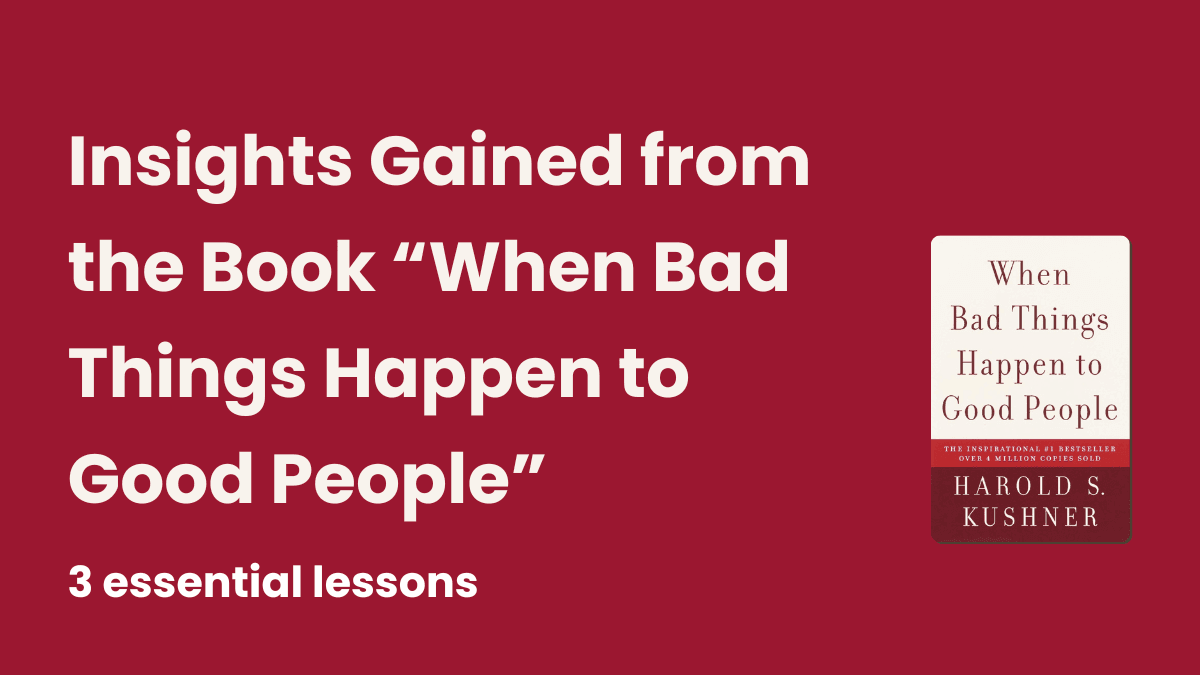
Table of Contents
- 1. Everything’s to defend God
- 2. Not everything happens for a reason
- 3. The test is not by God
- God works through you (Help comes)
- Where to go from here?
1. Everything’s to defend God
When we were kids, our Fathers and Mothers were everything to us.
They were the heroes and heroines of all of our stories.
They had all the answers; they had all the power to fulfil our dreams, and they were the ones we tend to when something goes wrong.
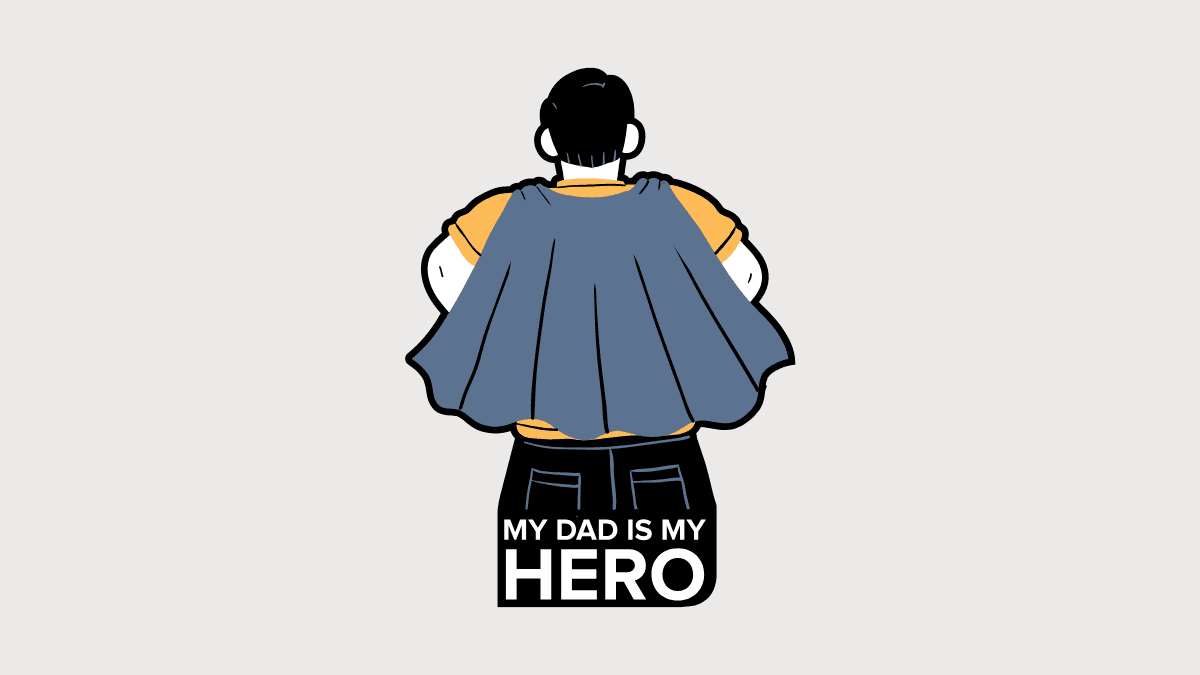
You can say, if someone asks what’s truth, we would imagine our parents.
This simply means that they can never do wrong because they are the heroes. They were the definition of goodness.
So, if they did something wrong, we wouldn’t believe it.
We just couldn’t because parents were the almighty; how could they do wrong or be wrong about something?
For example, when my Sister-in-law is wrong about something or she’s made a mistake, and I tell that to my niece, she just couldn’t believe it. Or if my sister-in-law has told her to do something in a certain way and if I tell her to do it another way, she just backs her mother’s way by saying, “Mumma told it this way.”
In life, whenever something bad happens, we become like my niece.
We start to defend God because we believe everything’s the doing of him, and he can never do wrong. Some people would say, God is punishing you for your wrong deeds, because who punishes whom? Good to bad: a judge to criminal.
Some would say it’s a great plan, like a hotchpotch, and in order to fit in his masterpiece, someone has to go through hard times.
And when all these defending arguments aren’t enough, some would say, God is doing it to repair something, like something’s broken inside of you.
But think for a second, how far all these reasons fit right?
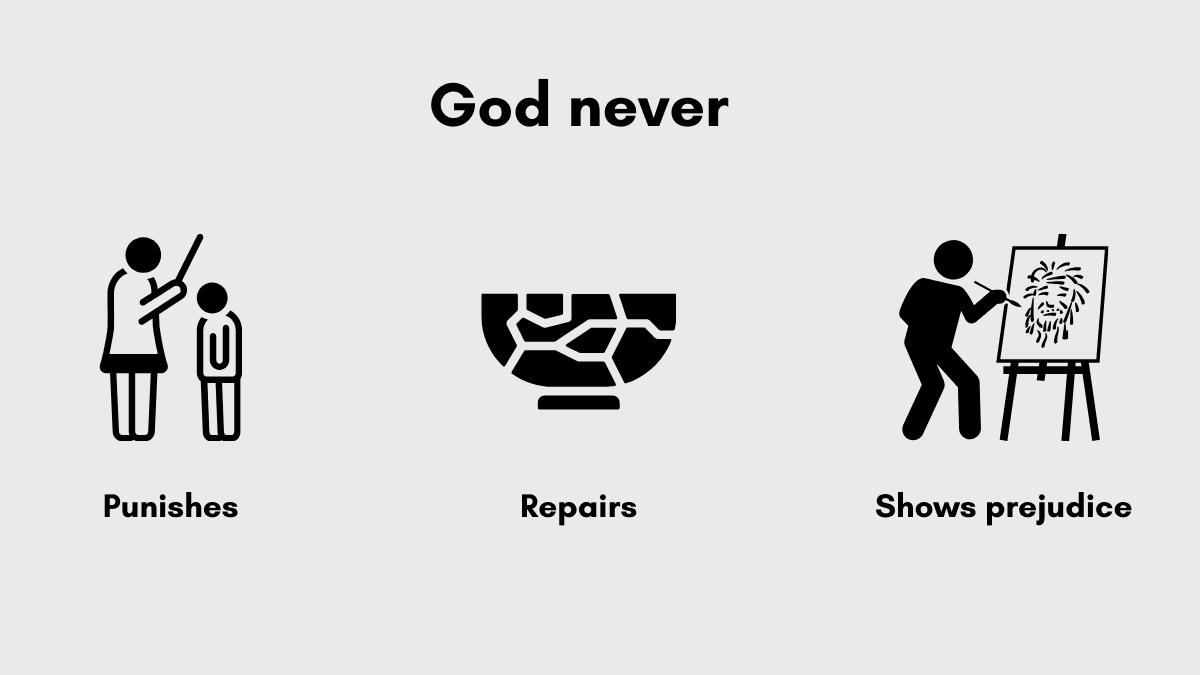
Punishment: For God, everyone is the same, so why would he punish? He loves everyone equally, whether you have done wrong or not.
A great plan: God is the almighty; he’s the superior being, and no plan is greater than him, so how could any plan make him treat some people better than others?
To repair something: If everything’s perfect in God’s eye, there’s no need to repair anything.
Just because we believe everything’s the doing of God, and God is always right, we don’t want to believe he has done something wrong, so we come up with these kinds of theories to defend God.
Not to hold him accountable for his mistakes, but defend him, because he’s the almighty, he’s the creator, he’s our Father and Mother.
2. Not everything happens for a reason
Another theory people give when something bad happens is that “Everything happens for a reason,” and most probably for good.
However, by reading the book “When Bad Things Happen to People,” I realised that, no, it’s not true.
Sometimes, some things happen for no reason.

It’s just our human psychology and the patterns of things that don’t let us believe that whatever happened, happened for nothing.
On top of this, science makes it true as well by saying every action has an equal and opposite reaction. Yes, if we talk objectively, it is possible.
However, there’s also a thing called Balance.
Whatever there’s in this world, there’s another side of it. If something happened for a reason, then there’s a possibility it didn’t happen for a reason.
Even balance has its other side, which is imbalance.
Hence, if something happened for a reason, it’s probable that something else happened for no reason.
3. The test is not by God
If the above theories don’t satisfy the people, they come up with another one.
It’s the test of being faithful.
The story of Abraham sacrificing his son is the root of it.
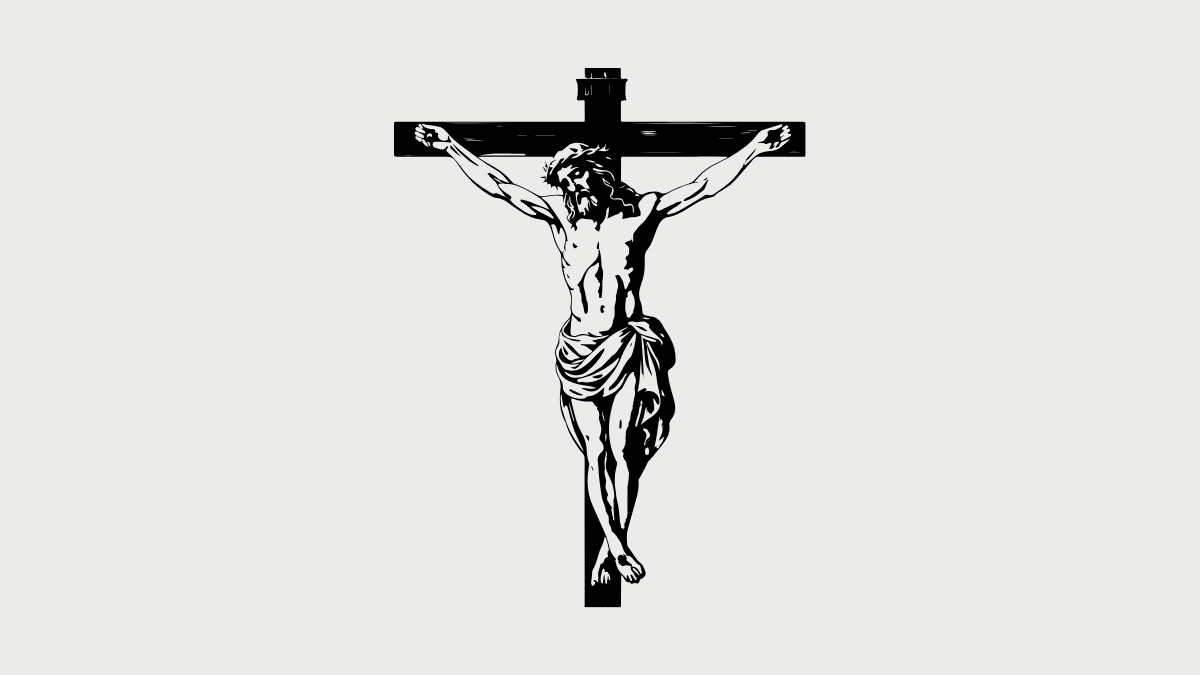
People tell other people who are suffering that whatever they’re going through is a test by God to check their faithfulness towards him.
It’s a test to make them strong. And God only tests those whom he loves the most.
You will hear something like this from people if you share your pain with them.
But think for a moment: does your mother or father test you to check your faithfulness in them?
Do they even need that to love you back?
I guess, no, they won’t because parents love their children regardless of whether they love them or not.
Yes, there are exceptions, but almost every parent loves their children.
If you have children or you are affectionate to someone, you’ll know what I mean.
This simply means God never tests you, and even if he does, he will never go to the extent where he has to take the life of someone closer to you. No, he won’t because he loves that person as well.
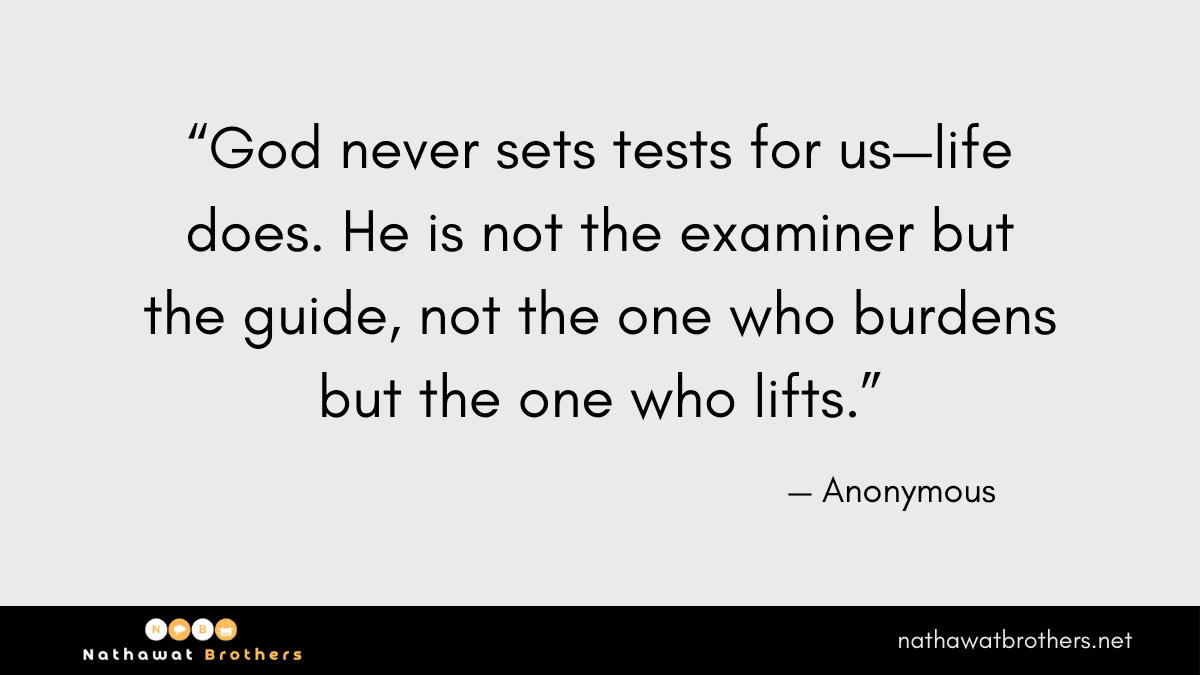
Perhaps we are going through tests, and it’s sure that struggles make us strong, but those tests are not syllabus of God because if it’s by him, then why would he help us?
Do the teacher who makes the paper aid their students? No, they don’t, but God always help us.
When we are in a mess, we look up to him to assist us get out of it.
So, why would he test?
God works through you (Help comes)
There will be bad things happening to people, and there will be theories to defend God.
But the thing is, God can make mistakes.
Yes, God can. If humans can make mistakes, then we are created out of his image.
And whatever traits we have, God perhaps has, too.
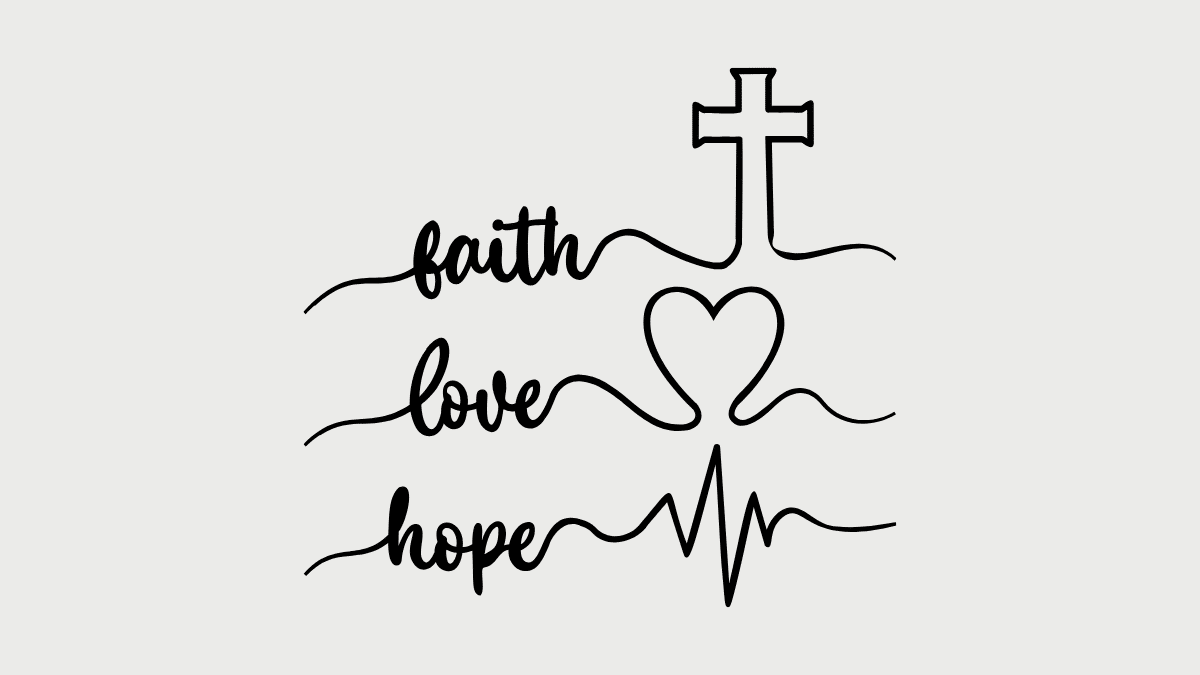
If God cannot make mistakes, then surely cannot handle everything. It’s like he’s a principal of a school, who is a higher authority, but whatever happens in that school, doesn’t happen because of him. Or by him.
There are teachers, there are students, and there are other staff that make a particular institution function.
So, we cannot blame him. We cannot defend him; sometimes there’s fate at play, which is surely not his doing. He created us, and likewise he created Clotho, Parcae, or Shai, who decides our fate.
Or perhaps, it’s all about perspective and the choices we make. The free will offered by the divine.
Whatever choice we make, it leads us to a different fate.
But one thing’s sure that God sends the help when we need it. He might not be able to come to us, but he motivates other people in whispers that make this world go working.
For example, when my brother and I wanted a fund for our business, none of the banks provided it.
But, it happened in a different way, we never anticipated.
When someone’s sick, we tend to God to help us, and God ignites love in we know to support us. Haven’t you seen people coming together, lighting candles, offering donations, and other kind support for someone who’s under way a serious treatment?
I believe you have.
It happens, and surely through the power of God.
And this is what the book, “When Bad Things Happen to People,” teaches us.
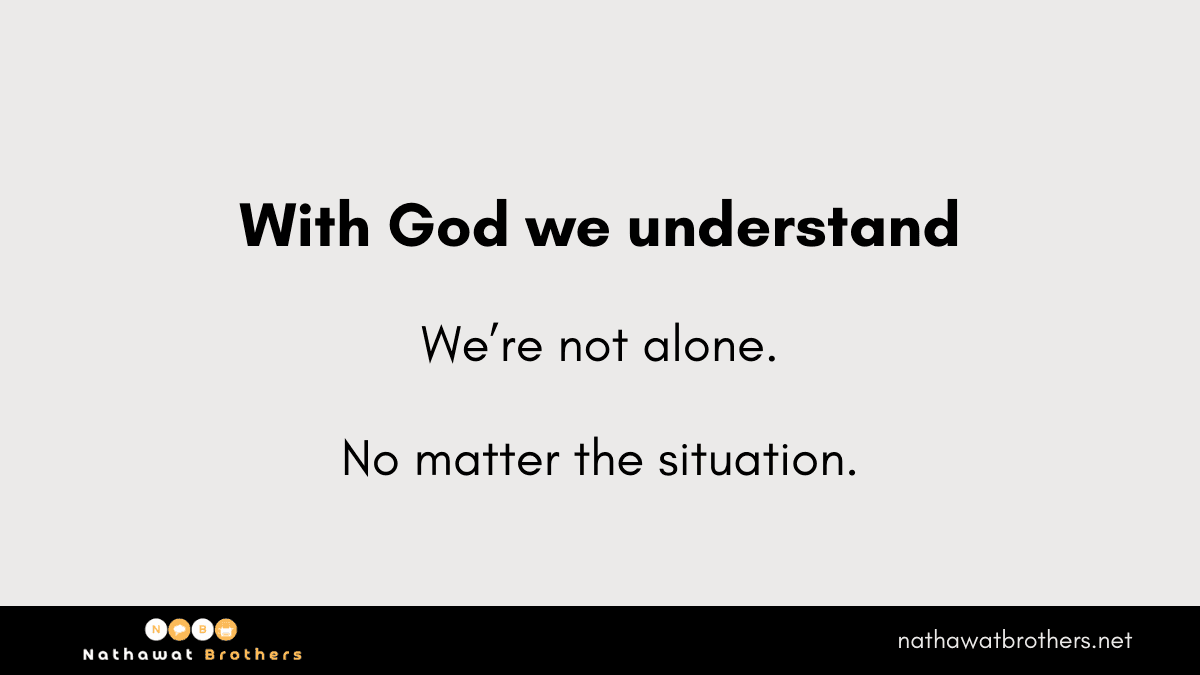
That the concept of God is to foster companionship, kindness, and empathy so that no one should feel alone when they are going through tough times.
No one should abandon their soul and become an animal.
No one should ask the question of “Why me?” Instead, they learn from the situation and overcome it by becoming strong, kind, and forgiving. That they understand the meaning of being human and loving other person without any expectations.
That’s what God means, and that’s why bad things happen to good people.
Where to go from here?
I hope the above discussion has given you some sort of clarity about bad things happening to people.
I hope it has given you a new perspective on how to handle similar situations happening to you or someone you care about. Not giving them another reason to feel sorry for themselves or hate God, humanity, or even themselves.
Instead, enlighten this thinking that whatever they are going through, they are not alone.
Make them understand that, surely, you cannot feel their pain in the same amount, but you’re with them, and you are or will try your best to support them however you can.
That’s all you need to understand and approach in the future whenever something terrible happens.
Not just with the people but yourself as well.
Thank you for giving your valuable time to this post on why bad things happen to good people. I hope it was worth reading.
Please share it with people you think would benefit the most, and if you’re not a subscriber, please subscribe to my free newsletter, which won’t disturb you or spam you in any way.
Thanks again.
Nathawat Brothers
Sharing life advices that make sense.
Find us on: